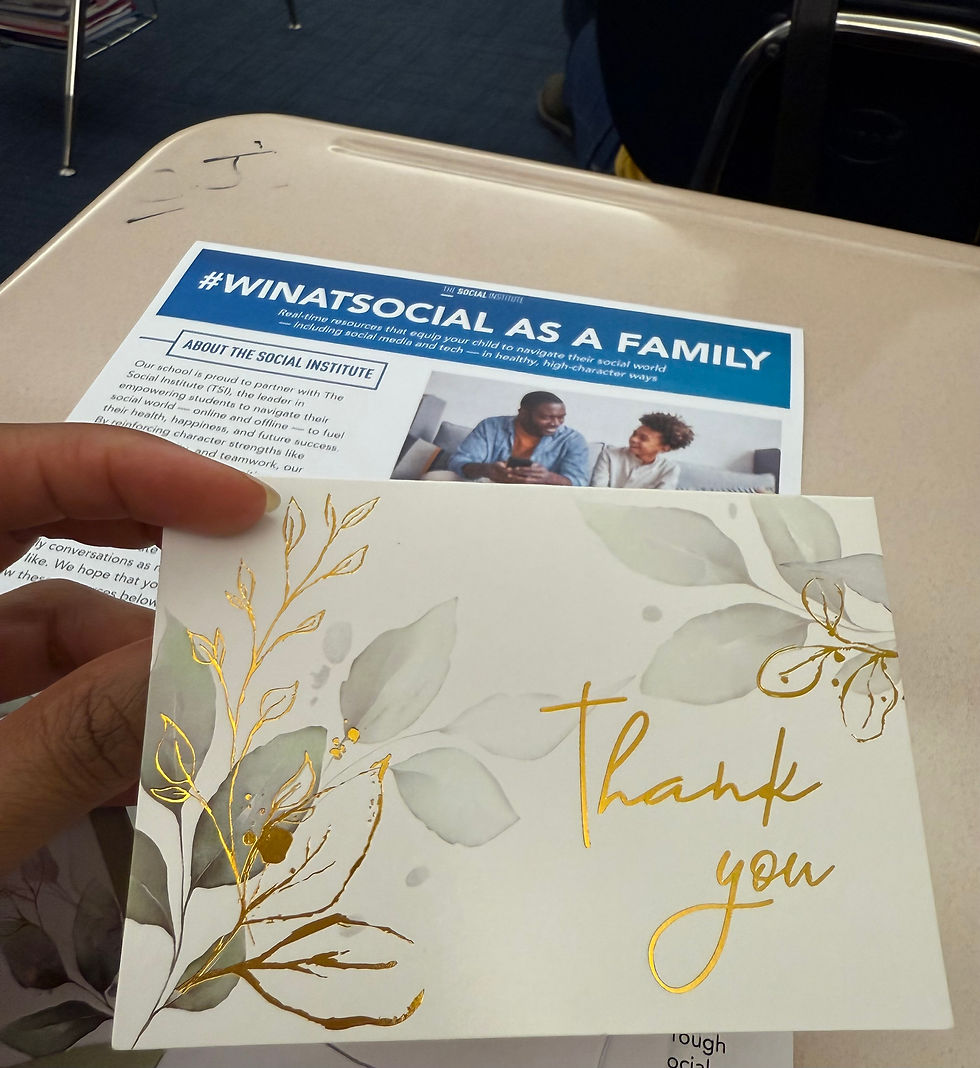When Our Childhood Meets the Classroom: Why Positive Guidance—and Mental Health Support—Are Non-Negotiable
- tbrown270
- Sep 1
- 3 min read

If you have recently spent any time online, you’ve seen the uptrend of heartbreaking clips: moments where overwhelmed adults and vulnerable young children in childcare settings colliding in ways that are unsafe and unacceptable. As a childcare owner and leader, those images sit heavy on my heart—and they fueled our recent Positive Guidance training.
We trained 21 teachers and 5 administrators. At the start, we ran an anonymous survey about our own childhood discipline. 19 of 21 staff reported experiences like spankings, beatings, yelling, or other corporal punishment. That single data point told a bigger story: in many of our communities—especially Black communities—harsh punishment has often been normalized as “the way” to get children to comply.
I heard the common refrain: “I got spankings and I turned out fine.” I invite us to look deeper. If I believe it’s acceptable to use physical force or humiliation with someone who is small, developing, and powerless—that’s not “fine.” That’s a survival narrative. And it deserves healing, not defense.
A quick note on history and healing
Scholar Dr. Joy DeGruy’s framework of Post Traumatic Slave Syndrome (PTSS) names how intergenerational trauma can shape beliefs and behaviors long after the original harm. Without intentional healing, we can pass down painful patterns—like equating obedience with safety and control with love. Naming this isn’t about blame; it’s about breaking cycles.
The pressure cooker teachers live in
Most early childhood educators are women. Many are heads of household. Add inflation, family stress, community violence, and the reality of caring for a room of three-year-olds—sometimes at 10:1 ratios—and the pressure is real. When a child throws a shoe or bolts toward a door, our nervous systems fire. In those seconds, people often reach for what was done to them, not what they know to do. That’s how moments escalate.
What leaders must do (now)
Changing outcomes requires changing adult support. Here’s our leadership playbook:
Make Positive Guidance the standard. Clear policies: no aggressive touch, no harsh tones, no shaming. Teach what to do—not just what not to do.
Invest in mental health. Encourage (and normalize) counseling. Cover the first session for staff and help them map next steps with a therapist. Healthy adults create healthy classrooms.
Build a coverage culture. Create a simple tap-out system and a daily coverage grid so teachers can step out before they’re flooded.
Coach, don’t catch. Replace “gotcha” walkthroughs with side-by-side coaching, role-play, and quick debriefs after incidents.
Plan for your highest-need children. One-page profiles (triggers, calming strategies, reinforcers), ABC data to spot patterns, and Behavior Support Plans that are actually used.
Protect ratios and sanity. Stagger transitions, pre-assign roles (who handles bathroom runs, cafeteria, outdoor line). Fewer chaos points = fewer escalations.
Offer learning that sticks. Repetition matters—short refreshers, peer modeling, and monthly focus skills (e.g., “validating statements,” “visual schedules,” “first-then language”).
What teachers can try today
Pause–Breathe–Name. “I’m feeling hot and tight. I need a reset.” (Signal your teammate and tap out for two minutes.)
Narrate, don’t judge. “Blocks are for building. Hands are for helping. I’m moving the blocks until we’re ready.”
Give two good choices. “You can clean up the markers or bring the bin to the shelf. You choose.”
Use “first–then.” “First shoes, then playground.”
Co-regulate with connection. Kneel, soften voice, breathe slow; offer a fidget or a wall push for big bodies/big feelings.
Reset the environment. Too many materials out? Remove a third. Noisy corner? Add a rug, soft lighting, or a quiet nook.
Reinforce the micro-wins. Catch and name the exact skill: “You waited your turn. That kept friends safe.”
What we learned from our training
Our survey didn’t expose “bad” teachers. It revealed good people carrying old pain into a high-stress job with little relief. Positive Guidance isn’t a script; it’s a culture. It requires adult regulation, consistent coaching, and systems that make the right thing the easiest thing to do.
Our commitment
At my schools, we’re doubling down on three things:
Training & coaching in Positive Guidance, de-escalation language, and environment design.
Mental health access—we cover the first counseling session and encourage staff to build an ongoing plan with a therapist.
Operational supports—coverage grids, tap-out norms, data tracking, and individualized plans for our highest-need children.
Because equalizing opportunity starts with the adults. When we heal, we teach differently. When we teach differently, children experience safety—and safe children learn.
If you’re a leader, I hope you’ll take this as your invitation to act. If you’re a teacher, please know that seeking support is strength. And if you’re a parent, partner with us—we’re on the same team, building the future your child deserves.




Comments